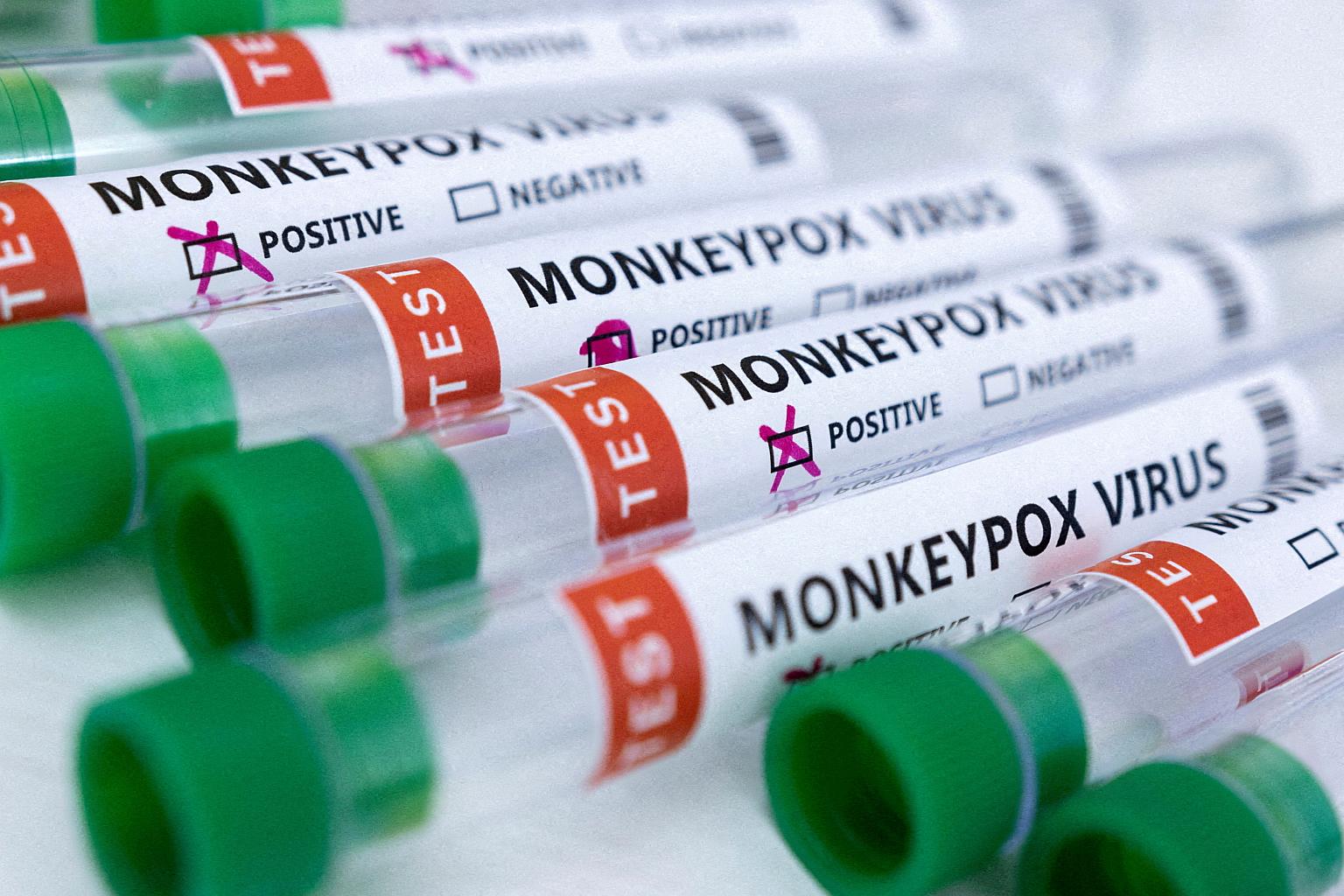Monkeypox patients who are clinically stable to be transferred to dedicated isolation facility: MOH
Sign up now: Get ST's newsletters delivered to your inbox

Those deemed stable will be sent to the isolation facility with round the clock telemedicine support.
PHOTO: REUTERS
SINGAPORE - All monkeypox patients who are clinically stable will be transferred to a dedicated monkeypox isolation facility from Monday (Aug 1).
The quarantine period for close contacts will now be cut to 14 days, followed by seven days of monitoring for symptoms via phone calls.
Previously, the quarantine period was up to 21 days.
The Ministry of Health (MOH) in a statement on Monday said: "These updated public health measures are in line with the latest local and international data, including that from the World Health Organisation (WHO)."
Public hospitals will assess whether the monkeypox cases are clinically stable.
Those deemed stable will be sent to the isolation facility with round the clock telemedicine support.
The patients will recover in the monkeypox isolation facility until they are non-infectious and fit for discharge, said MOH.
The MOH statement did not say where the dedicated isolation facility is located.
The Straits Times has contacted MOH for details.
Monkeypox, MOH said, is typically a mild and self-limiting illness where the majority of patients recover within two to four weeks without requiring hospitalisation.
"Those particularly vulnerable to complications are young children, pregnant women and immunocompromised individuals," it added.
Previously, all confirmed cases of monkeypox were isolated in hospitals until they are non-infectious.
However, MOH said last Friday (July 29) that eight cases were sent to the isolation facility instead, as part of a pilot to transit monkeypox cases to recover in the community.
These patients are all currently in stable condition with mild symptoms,.
Meanwhile, patients assessed by the public hospitals to be at higher risk of complications will continue to be managed in hospitals.
"This allows hospitals to preserve their capacity for cases with more severe symptoms or complications."
As for the shortening of the quarantine period, MOH said monkeypox transmission requires close physical or prolonged contact, including face-to-face and skin-to-skin contact such as sexual contact, so "the risk to the general public remains low".
"Evidence also points to a mean incubation period of approximately eight to nine days, with most close contacts developing symptoms by Day 14 from their last exposure to a confirmed case."
MOH said those who are unable to complete their quarantine at home will be transferred to a government quarantine facility.
"MOH will continue to monitor the monkeypox situation closely and calibrate our preparedness and response measures as needed.
"Members of the public are encouraged to exercise personal responsibility by monitoring their personal health, maintaining good hygiene and avoiding high-risk sexual activity, such as having multiple sex partners or casual sex, especially during travel.
They should also avoid close contact with individuals known or suspected to be ill with monkeypox infection."
There are 11 monkeypox cases in Singapore as at Sunday (July 31), with 45 close contacts identified, said Senior Minister of State for Health Janil Puthucheary in Parliament on Monday.
The current outbreak emerged in May, and has infected more than 18,000 people in 78 countries, said the WHO last Wednesday (July 27).
Nine people who contracted the virus in Africa, India, Brazil and Spain have died.
Some of the symptoms linked to the monkeypox virus include fever, headache, muscle pain, swollen lymph nodes, chills, lethargy and skin rash.


